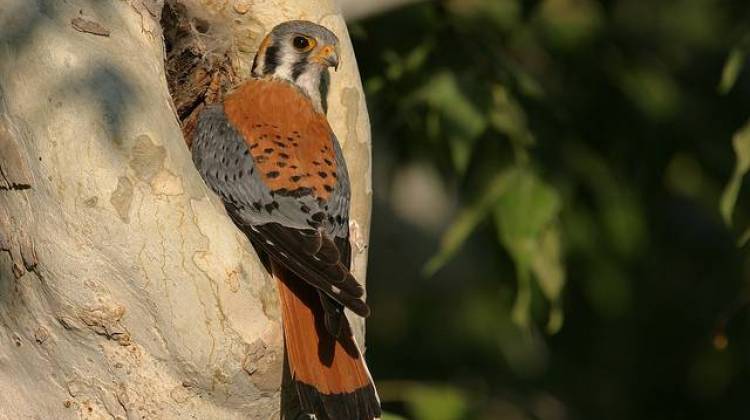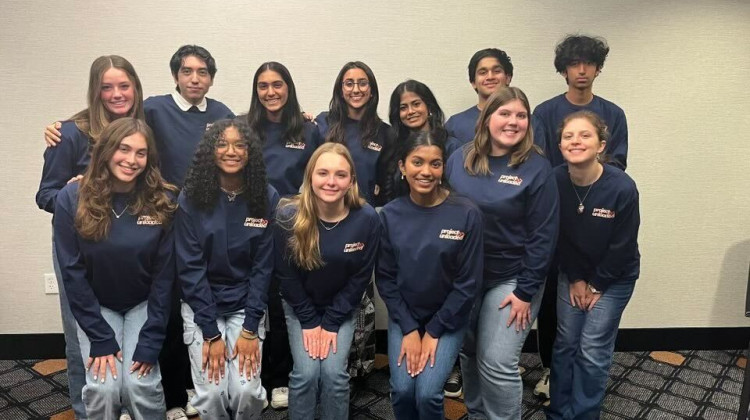
A new Audubon Society report says the American kestrel, which is found in Indiana, is one of 314 birds at risk.
Gregory Smith (flickr)
A new Audubon Society report claims the combination of climate change and habitat destruction could put a large number of North American bird populations at risk sooner rather than later, including some native Hoosier birds.
The report predicts that, of the 588 North American bird species observed in the study, 314 are at risk because of decreased climatic range due to rising temperatures over the next century. For example, a bird spending winters in Mississippi could soon spend winters in Missouri.
And native Hoosier birds, such as the American kestrel, will certainly be affected.
"The suitable habitat is going to change and the range is going to decrease," says Barny Dunning, wildlife ecology professor at Purdue University. "So we can expect fewer of those birds in our area under a climate change scenario."
The report uses bird count data collected over three decades and carbon emissions projections to determine suitable climates for birds now and in the future as temperatures increase.
Some birds may adapt well to new locations. Others, though, could be forced into areas with a comfortable climate, but unsuitable surroundings.
That combined with increasingly partitioned habitats due to rural industrialization will make species reluctant to settle.
"With migrant birds, you could say, 'Well they fly all the way to Mexico. Surely they can hop over a power line.'," says Dunning. "The reality is that when these formerly extensive habitat patches get reduced down to small pieces--yeah the bird can fly there, but they don't stay."
The report calls for doubling down on habitat conservation efforts and reducing carbon emissions to protect the threatened species.
More information about the Audobon Society Birds and Climate Change Report can be found here.
 DONATE
DONATE






 View More Programs
View More Programs



 Support WFYI. We can't do it without you.
Support WFYI. We can't do it without you.